After the press screening of David Michôd’s The Rover at The Carolina on Sunday morning, three out of four critics (including me) settled on the sure-to-please break-out quote, “Well, I didn’t hate it.” (The fourth critic had called it “pointless” and had gone home by the time the rest of us were thrashing it out with a studio rep.) I wasn’t personally that surprised because I’d been one of the few people in the critical world who thought Michôd’s 2010 Animal Kingdom was nothing special. In fact, I found it pretty boring. The Rover, at least, I didn’t find boring – well, most of the time. All in all, I was mostly perplexed by the film’s existence. If ever a film probably oughtn’t have included a scene where one character looks at another and asks, “Why are you telling me this?,” The Rover is that film. I spent most of the movie wondering why Michôd was telling me this story. And while the answer to that question in the film is the quasi-existential assertion that not everything needs to have a point, that’s pretty cold comfort for the viewer.
The story is pretty much your basic post-apocalyptic hooey, only with less than usual explanation. All we know is the story is set 10 years after “the Collapse.” Just what that was is left to the viewer to conclude, and I guess anyone who’s seen The Road Warrior (1981) or even Resident Evil: Extinction (2007) has a workable notion. Society has collapsed – though for some reason money (especially U.S. currency) still works – and mankind has been reduced to some kind of brutal existence in a dusty, bleak, inhospitable world that looks like the Australian Outback on a particularly bad day. All that seems to exist are crude structures that look like an endless collection of disused auto repair shops that have been reduced to crummy bars and black market emporiums where one can acquire gas, ammo and the odd tin of sardines. Why or how anything could possibly matter in this world is a mystery of some note, and to the degree The Rover answers that question, it’s in the nature (I think) of a joke that doesn’t make much sense. Further discussion would land us in the realm of spoilers, so let’s just say this truly is a shaggy dog story.
Guy Pearce plays a fellow called Eric (in the credits, but not in the film), who is traveling somewhere for some reason, not that it looks like any place is much different from any place else. Along the way he stops at a bar for a drink. In the meantime, three idiots who are fighting in truck run their vehicle off the road. (The silent image of this taking place behind the blissfully unaware Eric is the movie’s single amusing moment. Savor it.) Rather than setting their truck to rights, they steal Eric’s car. He takes exception to this, so he takes off after them in their abandoned truck. That pretty much is the plot, except that Eric comes across the simple-minded Rey (a startlingly good and utterly glammed-down Robert Pattinson), wounded brother of one of the thieves. Deciding that Rey might know where the others are going, he has him patched up by what passes for a doctor, and they set out in pursuit.
What we end up with is a slightly tedious chase, occasional outbursts of brutal (but strangely one-note) violence, the inevitable quasi-bonding of Eric and Rey, and, of course, the anticipated show-down. Mostly, Pearce looks bitter and stoic, Rey tends to natter on in an inexplicable American redneck accent, and everyone is pretty miserable. Strangely, and in large part due to a few peculiar touches like a strange old woman, misplaced circus performers, people crucified on telephone poles, and Pattinson’s performance, the whole thing manages to be compellingly watchable. Problem is that its sun-baked nihilism doesn’t finally amount to much of anything. Rated R for language and some bloody violence.
Playing at Carolina Cinemas.



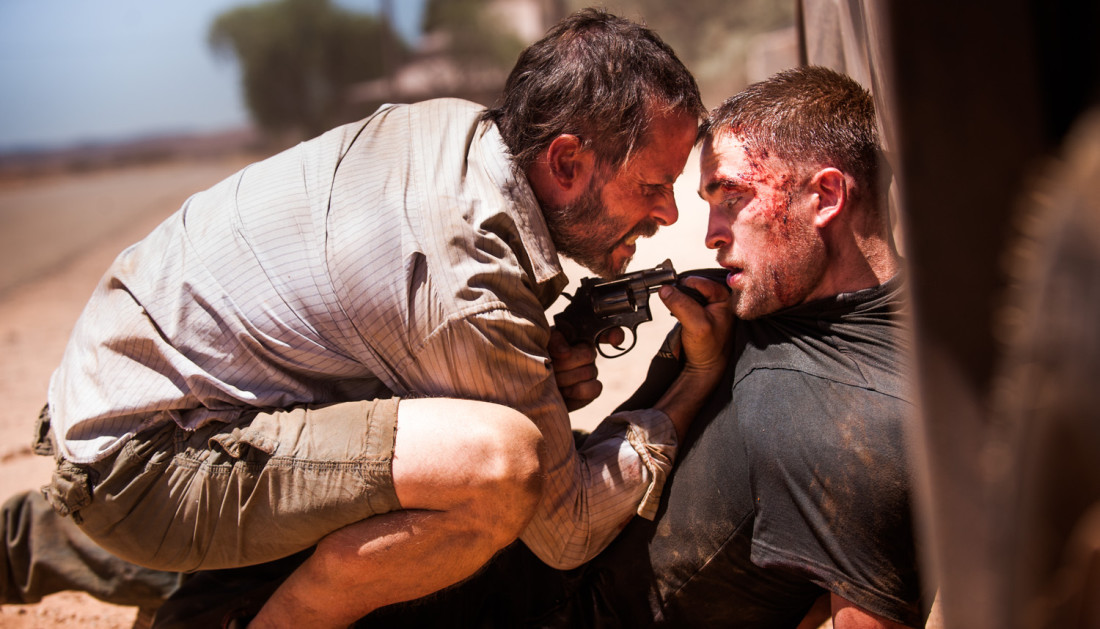
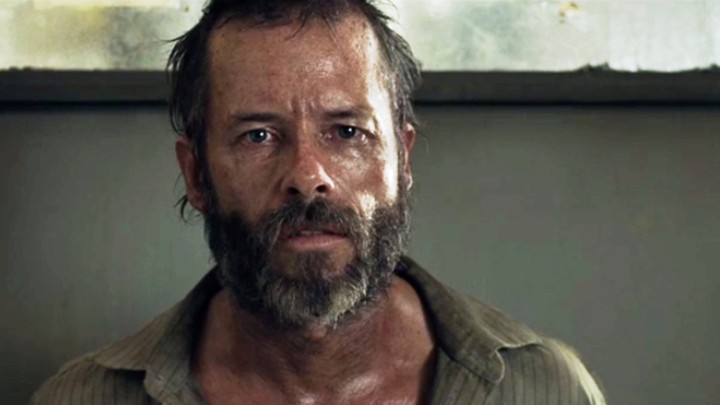
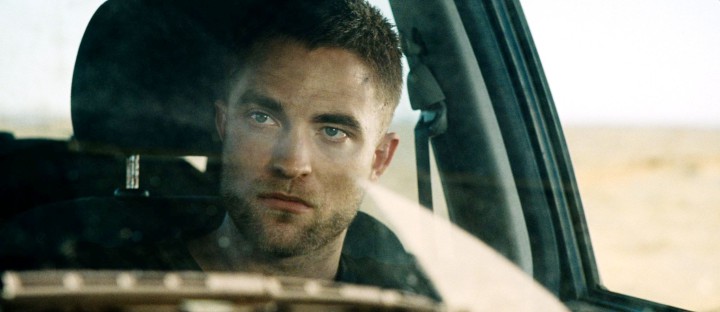
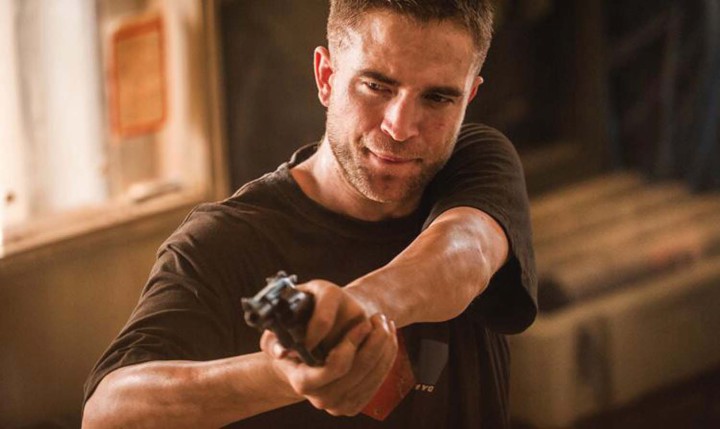
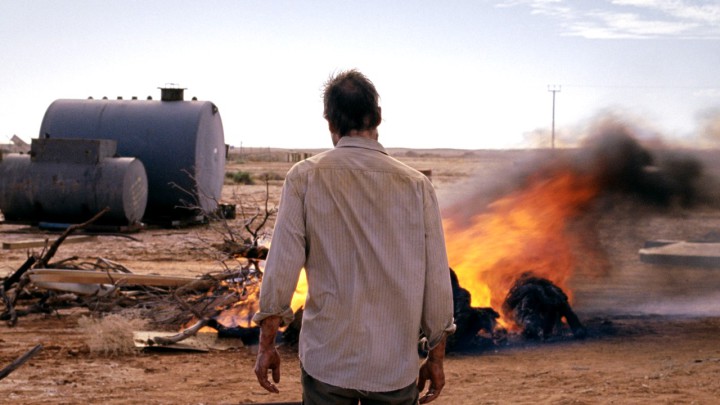
“I didn’t fall asleep” – E. Arnaudin
“Kept hoping Guy Pearce would dress in drag and lip-synch ABBA songs while committing mayhem.”
A Southland Tales-type tangent of “Dancing Queen” would have been most welcome.